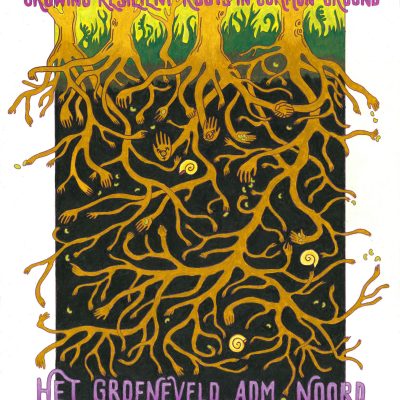
Fertilizer giants such as Yara have been coined the ‘Exxons and Shells of industrial agriculture’. Almost all industrial nitrogen fertilizers are currently manufactured from fossil fuels, mainly gas or, in some countries, coal or oil. Today 3-5% of the global fossil gas consumption is used to produce nitrogen fertilizers.
Thousands of tons of GHG are emitted during the whole process: when gas is extracted and transported, when ammonia (NH3) is synthesized (through a chemical process called the “Haber-Bosch” process), and when fossil fertilizers are applied to the soil. The industry of fertilizers emits 2.4% of worldwide GHG each year, which is more than commercial aviation!
Yara has been the biggest industrial consumer of fossil gas in Europe for years. Its business heavily relies on fossil gas (60-90% of production costs), which it uses both as a raw material AND as a source of energy. Thus, Yara has every interest in keeping us in a gas lock-in and actively lobbies for gas and fracking. It is also one of the most influential lobbies for hydrogen inside the EU, because hydrogen is a branch of the fossil fuel complex.
Whether gas is extracted in Algeria, Egypt, Qatar, Russia, China, or the USA, it is always subject to geopolitical interests, fuels war and militarization, and threatens the health and livelihoods of local populations living near extraction sites. The global food and energy systems are entangled, and so are the economic interests of the fertilizer industry and the fossil industry. Phasing out of fossil fertilizers means regaining food sovereignty and energy democracy!
References:
Center for International Environmental Law. (2022). Fossils, fertilizers, and False solutions: How laundering fossil fuels in agrochemicals puts the climate and the planet at risk. CIEL (publication)
Gastivists (2022). Pipelines fuel conflict. StopEastMed.org. (article)
GRAIN, Greenpeace, & International & Institute for Agriculture and Trade Policy (IATP). (2021). New research shows 50 year binge on chemical fertilisers must end to address the climate crisis. GRAIN. Retrieved May 22, 2024. (article)
GRAIN. (2013). The Exxons of agriculture. Retrieved May 22, 2024. (report)
Huber, B. (2021). Report: Fertilizer responsible for more than 20 percent of total agricultural emissions | Food and Environment Reporting Network. (article)










